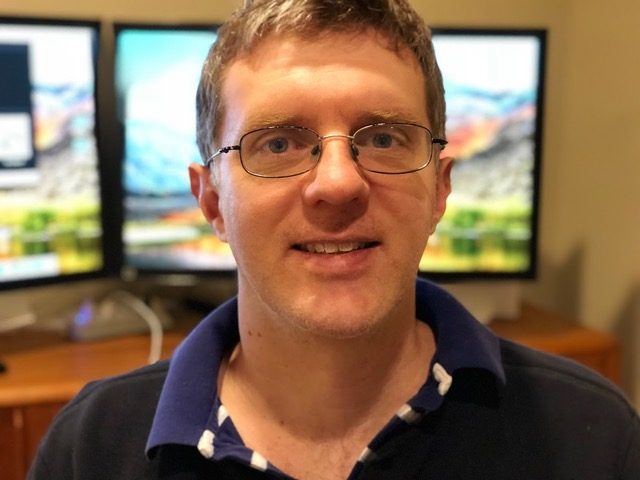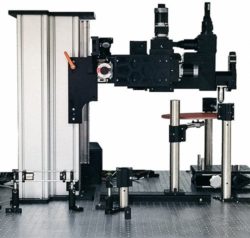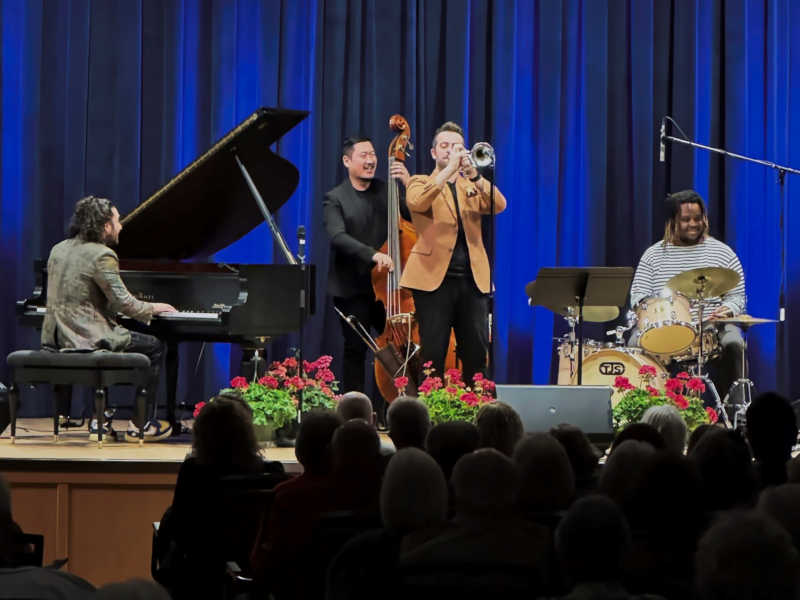Pictured above: Dr. Stephen D. Van Hooser
Private research at Brandeis University in Waltham, MA, is about to achieve a turning point in the treatment of neurodegenerative diseases such as Parkinson’s, epilepsy and Alzheimer’s. These diseases incrementally steal abilities most of us take for granted such as speech and motor skills. The university is poised to buy a cutting-edge 2-photon microscope that observes neural activity and anatomical features within the living brain. This titan of a microscope has a titan of a cost as well; half a million dollars, which is hoped to be raised through major Brandeis fundraisers. The powers of the 2-photon go well beyond the capabilities of Brandeis’ current microscopes, according to the university’s Associate Professor of Biology, Dr. Stephen D. Van Hooser. “It actually possesses the ability to uncover the inner workings of brain function and will permit scientists to understand how the brain is compromised in neurodegenerative diseases and hopefully reverse them,” Van Hooser explains.
Precision and high-resolution imaging are at the heart of what makes this microscope so impressive. Van Hooser, whose lab specializes in imaging of the living brain, is enthusiastic about the widespread applications that the microscope can provide. “Many people are familiar with MRI scans of the brain,” he says, “but an MRI can see only gross features and is about 1,000 times too insensitive to observe the activity of individual brain cells. The 2-photon microscope we are seeking allows us to resolve the activity of hundreds of individual nerve cells in the living, behaving brain, in order to understand how this activity is shaped by experience or disease.” The long-range ultimate goal of this research is to be able to reverse these diseases of the nervous system or repair the brain after an injury.
As any amateur photographer knows, movement can be the bane of a sharp photo, as it can produce a blurry image. The same principle applies to the new resonant-scanning 2-photon, which takes pictures 60 times faster than current 2-photon microscopes in use. With the breakthrough of this new technology, pictures are taken so quickly, scientists can observe small movements of the brain that occur during heart rates and breathing, and by correcting the movement over time achieve higher resolution photographs. “In addition,” says Van Hooser, “there are new laser light sources that provide the illumination that allows us to see into the brain better than we could before. The basic idea of using laser light has been around for about twenty years, but the technology for scanning the material this quickly has only been recently perfected.”
In the quest to secure the 2-photon microscope and expand brain research, Van Hooser has a major champion and cheerleader – local Brandeis chapter member, Caryn Balaban. The benefits of the microscope have the potential to affect her on a deeply personal level – her husband has Parkinson’s disease.
Caryn is involved with planning a major event in November to help fund the acquisition of the 2-photon microscope (see sidebar). A woman on a mission, Caryn is not only on the board of the Phoenix chapter but also has a position on the Parkinson’s Foundation’s People with Parkinson’s Advisory Council (PPAC).
Four years ago, her world experienced a seismic jolt when her husband Al received the devastating diagnosis of Parkinson’s. While still working as a CPA, Al has had substantial loss of motor skills.
“Parkinson’s is a thief that steals your brain and body,” says Caryn. “My husband is not a quitter, but it is hard for us to remain upbeat. He suffers from tremors, stiffening of the back and neck, jaw trembling and falls. The worst part of the disease, according to my husband, is that you ‘wear it’ and also you don’t know what is coming next.”
According to statistics, 60% of Parkinson’s patients develop psychosis and hallucinations, all a terrifying prospect. “We don’t know if we’ll be the lucky 40% or the unlucky 60%,” says Caryn, who dedicates her efforts towards increasing awareness and raising money for Parkinson’s and neurodegenerative diseases.
BNC Phoenix Chapter presents The Matters of the Mind Auction
When: Saturday, Nov. 10 from 7 to 10 pm
Where: Private home in the Biltmore area
What: Evening featuring hors d’oeuvres and wine with an auction that includes private dining experiences, concert, theater and museum tickets, gift cards, jewelry, vacations, art and more to bid on. Proceed benefit advancing neuroscience research for Brandeis University.
For more information, contact Caryn at 602-788-6806 or visit brandeisphoenix.org.







